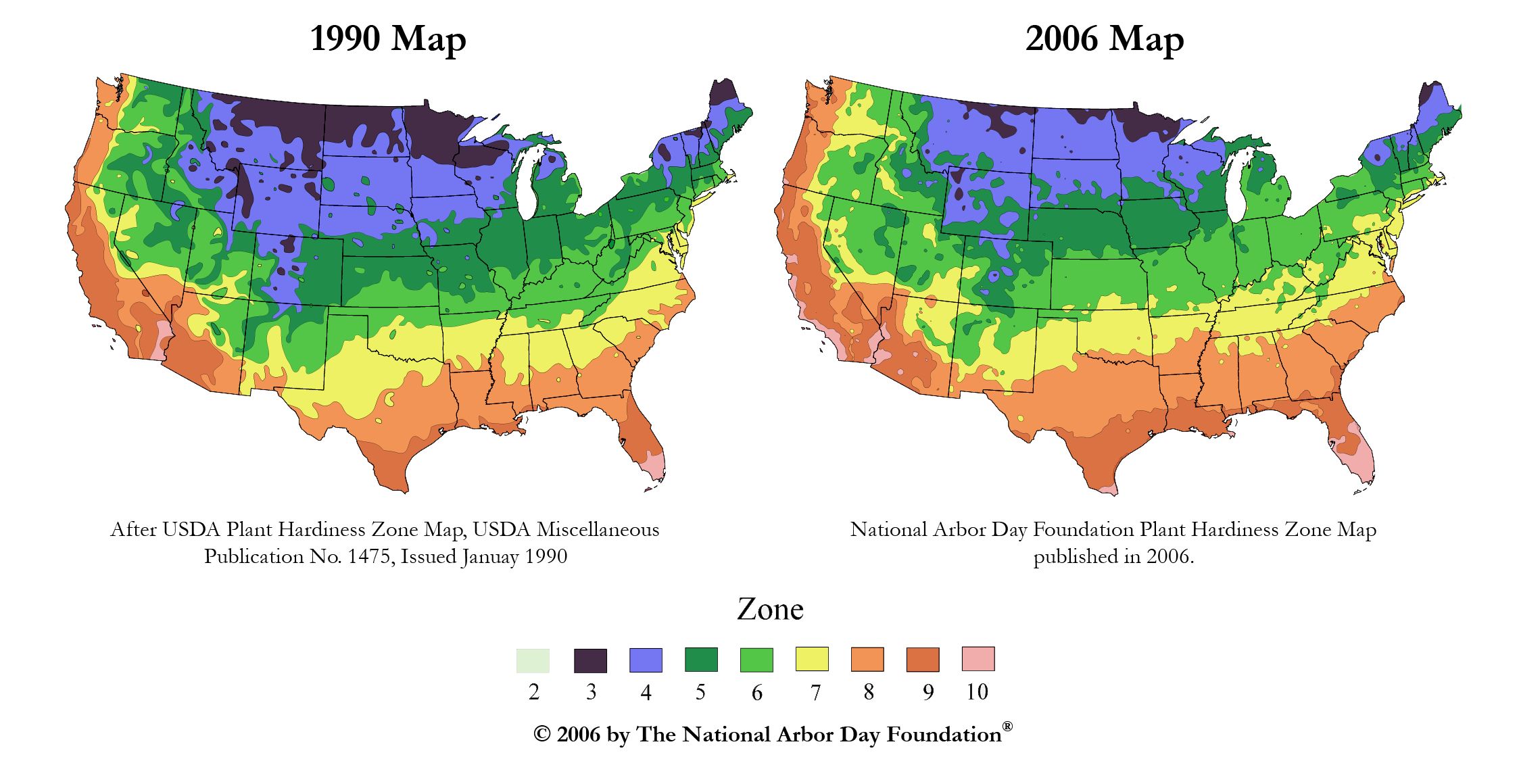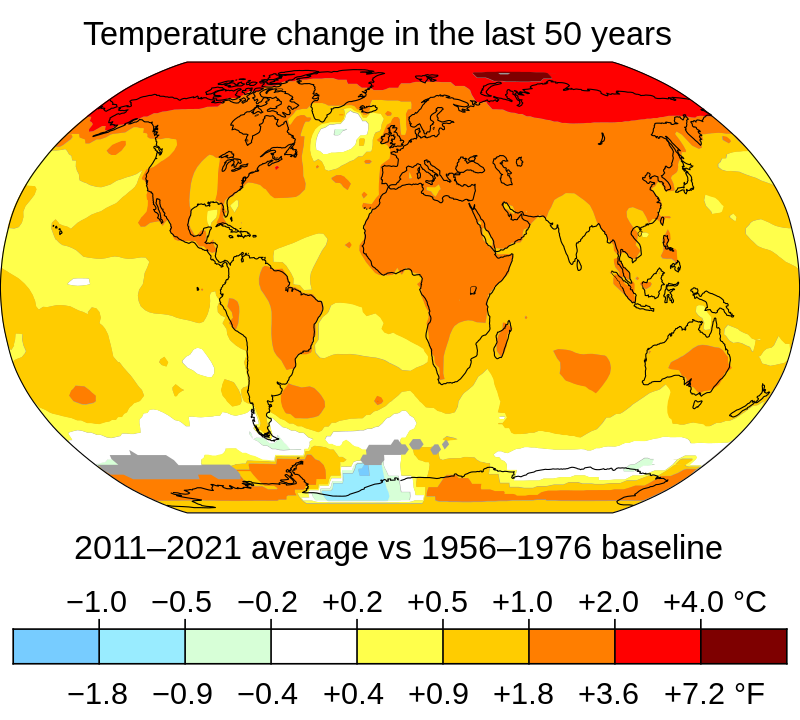
It does not matter whether a person is overconfident or skeptical about climate change. Some people believe it is too late to stop the problem, while others feel that civilization is heading for catastrophe if they don't take drastic measures. There is no doubt that global warming poses a serious threat to humanity. A changing climate is already having an impact on extreme weather events and sea level rise as well as increasing environmental and human health hazards.

Recent data from Yale Program on Climate Communication shows that people are more than willing to allow all actors to take action to solve the problem. The survey, conducted in 2020, showed that citizens, corporations, local governments, and federal government were all supportive of action to address the problem. Nevertheless, a large majority of the respondents disagreed on whether or not the United States should be doing more. This is not surprising considering that the US has historically been the largest emitter and contributor to global warming.
In order to understand the relationship between public opinion and climate change, researchers surveyed a sample of over 700 Yale University students. The researchers found that the public supports all types of actors but the level of support for each differs in a systematic way. These differences could be used to create different policies. It is also possible that different cultural groups may be affected by different aspects.
Although there is no conclusive evidence on whether different solutions are effective, some solutions have failed to solve the problem. The polycentric approach allows for multiple actions on different scales and is likely to be more successful. This would draw widespread support. Future research will examine the effectiveness of various solutions over time and whether the same holds for local and state government actors.
A Yale Program on Climate Communication study also revealed some interesting findings. The Yale Program on Climate Communication's study found that small-scale lifestyle changes are the best way to combat climate change. The increasing concern for the environment by young people is another noteworthy finding. Climate change is more likely to impact young people than older ones, as they are more susceptible to heat waves, flooding from the coast, and rising pollution.

A solution that appeals to all cultural groups is also likely to be the most effective. However, because the most effective solution requires broad public support, some may prefer to avoid this issue entirely.
The polycentric approach is the most effective, and requires multiple scales of intervention. But, this approach will only work if the public supports the idea. This is often not the case. For example, individualists are less likely than others to support a multicentric approach and prefer a top-down, streamlined approach.
FAQ
What are the possibilities for new technologies to combat climate change?
There are many technologies that can be used to tackle this global problem. We can now transition to a more sustainable tomorrow by utilizing renewable energy sources such as solar, wind and geothermal, as well energy storage systems like thermal tanks or battery packs.
New methods for carbon capture or sequestration can be used to lower greenhouse gases. Additionally, improved agricultural practices can reduce the emissions of livestock and soil erosion. Smart grid technology may also be used to boost efficiency and improve building design.
The latest synthetic biology methods allow scientists to create organisms that can use green sources of fuel like the CO2 laser as biofuels or alternative feedstocks. This could revolutionize transportation if the market turns away from petrol-based vehicles toward zero-emission electric cars powered by clean sources.
Finally, increasing investment in digital tech and AI can enable people to access data across borders and help them make more informed consumption decisions. Understanding how we contribute to the carbon production of our planet is key for better stewardship.
How does the politics of climate change impact global efforts to address it?
Climate change is a hotly debated issue, which has led to a lot division among countries, governments, as well as individuals. The political stances taken by different actors will impact the implementation measures to combat climate changes. It has been difficult for global consensus to address this urgent environment crisis.
Most scientists agree that humans are causing climate change. This is why it is urgent to act. These politics often hamper global cooperation needed to achieve effective progress in implementing sustainable energy practices.
Many governments in the world want to protect their economic interests, and enforce measures that limit business activities. This often conflicts with the regulations that experts recommend to address climate change efficiently. Without strong commitments from all participating countries and wide-scale international action, it becomes very difficult for any single state or group of states to adequately address climate change through legislation or otherwise.
Differences in power dynamics among countries further complicate gaining full consensus on how best to tackle climate change. Countries with greater economic power are more likely to elect their own representatives to the international bodies responsible for negotiations on the environment. This can cause lopsided discussions about the interests of each country versus the collective interest all parties. A number of potential side effects that could be caused by radical changes like geoengineering were also discussed at national and international levels.
At a grassroots level too, grassroots movements have struggled against powerful opponents including corporate ownerships and well-funded lobbies trying to maintain politically favorable positions for their industries especially when it comes to funding research into alternative forms of energy production or enforcing renewable energy technology mandates such as low emissions targets for vehicles etcetera - meaning individual governments must remain clearheaded about potential rewards and outcomes if they are going actively try to make valid progress on the matter in the question itself instead seeking public favor through short-term gains or even spectacles.
To mitigate the current environmental crisis, it will be crucial that resources are properly distributed and political divisions between countries are not overlooked.
What is the impact of climate change on biodiversity and ecosystems?
Climate change has a range of impacts on biodiversity and ecosystems. Rising temperatures, changes in extreme weather events and sea levels, as well as increased acidity in the ocean are just some of the issues affecting wildlife and ecosystems today.
These shifts in climate conditions can cause shifts in habitat areas, disrupt food chains or affect population numbers or species distributions, with potentially dramatic consequences for biodiversity and the functioning of ecosystems. Water availability can be affected by changes in hydrological cycles.
Climate change also causes rising temperatures, more frequent extremes like droughts and flooding. This puts additional stress on fragile systems like coral reefs and tropical rainforests. The climate change will lead to the extermination or decline of as many as 30% of animal species in 2050. This could cause further destruction of ecological communities.
Climate change poses a significant threat to biodiversity and human societies, as well as to ecosystems that provide food, water, timber, or other services. You can mitigate the effects of climate change at all levels by reducing global warming trends. Further, future damages can be prevented with good management practices.
Statistics
- features Earth's average surface temperature in 2022 tied with 2015 as the fifth warmest on record, according to an analysis by NASA. (climate.nasa.gov)
- Fossil fuel production must decline by roughly 6 percent per year between 2020 and 2030. (un.org)
- Indigenous peoples and local communities receive less than 1% of all climate funding despite scoring wins for people and nature Africa's broken food markets must be fixed to tackle hunger (climatechangenews.com)
- features Earth's average surface temperature in 2022 tied with 2015 as the fifth warmest on record, according to an analysis by NASA. (climate.nasa.gov)
- According to the 2014 report on Climate Change Impacts, Adaptation, and Vulnerability (page 8) from the United Nations Intergovernmental Panel on Climate Change, governments at various levels are also getting better at adaptation. (climate.nasa.gov)
External Links
How To
How to educate your community about climate change and mobilize action
Climate change education can take many forms - from online resources and interactive educational tools to classroom activities, simulations, and experiential learning programs. These are the key components of climate change education.
-
Practical knowledge of the subject is essential for people to be able to make informed decisions.
-
Demonstrating the many ways individuals can make positive changes
-
Participants are invited to engage in an open conversation about possible solutions
-
Inspiration through shared experiences that inspire action
Teachers can help communities to reduce their environmental footprints by offering comprehensive lessons in climate change for both adults and students.
It is also possible to connect scientific research with real-world examples, which can be a unique way of engaging audiences in meaningful dialogue. Participants can also witness positive outcomes from case studies and best practice, which can be used to inspire innovation and replicateable measures in their communities.
By incorporating action-oriented activities into education curriculums, participants are equipped with the mental tools necessary to create campaigns or petitions. They can then become agents of change in their communities or for sustainability. Individual agency is important because it highlights the importance to reduce emissions. Participants can also be shown how they contribute collectively towards a better outcome. Participating early in policy-making helps to encourage active participation. This allows for more equitable outcomes. By combining our efforts to raise public awareness about the impact of climate change with appropriate actions to mitigate greenhouse gas emissions, we may be able create an environment in which these urgent matters are addressed with special attention where it is most needed. This will allow us to work together to implement successful measures that will help us achieve our collective goals.